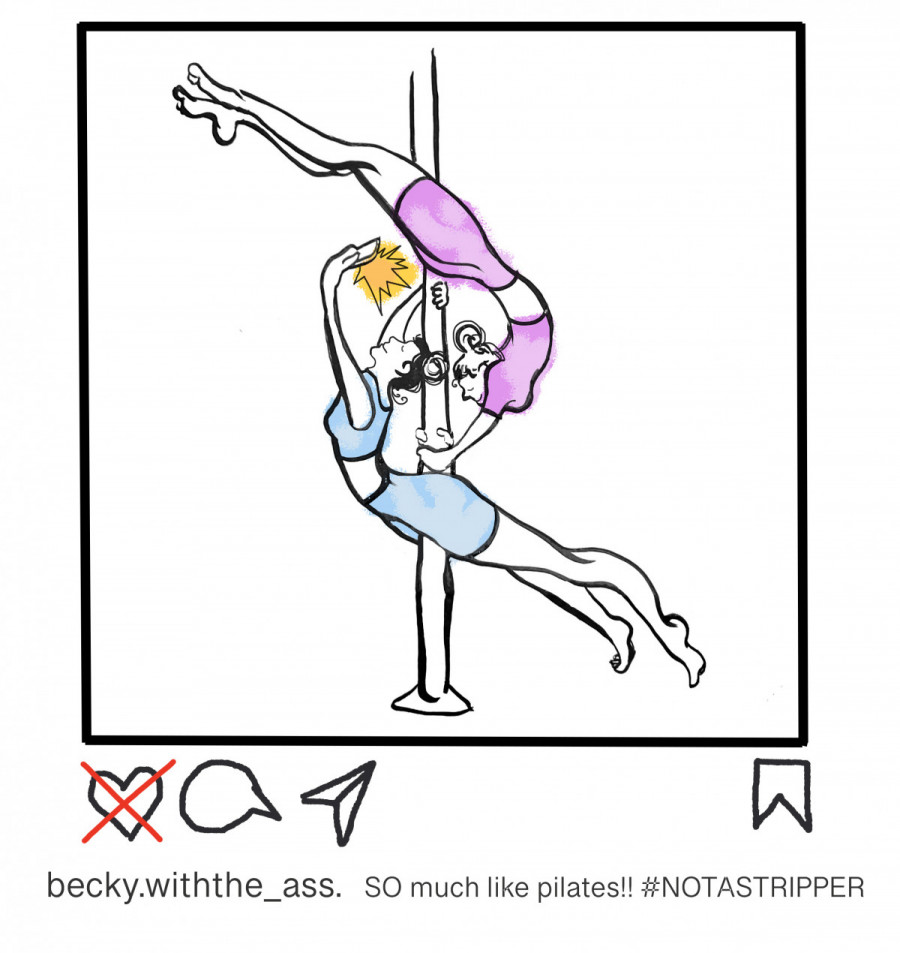The Cultural Appropriation of Sex Work
What’s the Whoredeal?
Every time I scroll through my cursed Instagram feed and see a pole fitness enthusiast with pleaser heels who isn’t a sex worker, I cringe a little.
Call me a little prejudiced, but I can’t get over the amount of pole fitness folks who refuse to acknowledge the roots of their favorite hobby. They caption their posts with #NotAStripper because God forbid anyone confuse them for some of the biggest heroes of our country! Personally, I prefer #YesAStripper posts because I love a good challenge of the Madonna-Whore dichotomy.
If you look at pop culture and cinematic depictions of people who work in the sex industry, you will see that sex workers have always been turned into caricatures. Racialized sex workers especially have been the butt of many jokes that degrade them. Simply think about Full Metal Jacket’s “Me Love You Long Time” scene, or how Black Trans women are often portrayed in different series and films.
Grand Theft Auto is another example, especially since it literally gives the player an option to brutalize strippers. The dehumanization of sex workers is heavily normalized and feeds into the stigma that contributes to this disconnect many pole fitness folks perpetuate.
Yes, little polerina, it is true that you are not a sex worker. You get to do your little spins on your pole without worrying about the physical, sexual, verbal and systemic violence that strippers and other sex workers are put through on a regular basis. You get to adopt sex work aesthetics without the stigma that typically accompanies it. You also occasionally appeal to the male gaze, except strippers actually profit off of it while you do it for free, or even lose money doing it.
Your so-called art of fitness has really made things trickier for sex workers! You know those cute little outfits that you wear? Well, some people actually need those for work rather than leisure. Now, they’re becoming less affordable than they already were in the midst of a recession.
It’s currently becoming trendy to reap stripper benefits without facing any of the potential consequences such as barriers to future employment opportunities, being outed in dangerous situations and even worse: violence and murder, which especially impacts full-service sex workers. It’s kind of like how thrift stores used to be a thing for people who needed to buy affordable clothes but became gentrified by Plateau hipsters or how white women colonized Black women’s hair products.
It is crucial to acknowledge the privilege of being able to pole and wear pleasers for fun versus having to do it to put food on the table.
I have to ask, why do you get grossed out and defensive when people think of it as a stripper sport? It looks like internalized whorephobia to me, but what do I know? What is wrong with being a sex worker? Please enlighten me!
As my good friend and performer Mina Minou once beautifully said, “Denying the inherent sexuality of pole dancing is kind of classist and undervalues the work of poor Black and brown women and femmes who have struggled for physical autonomy for generations and by perpetuating the separation of fitness with strip culture you’re undermining their labour.”
How can you appropriate elements from sex work culture, yet have such negative perceptions of this same culture that paved the way for you to be able to practice your passion? Next time someone asks if you’re a stripper, feel honoured that someone could have mistaken you for one.
This article originally appeared in Volume 43, Issue 11, published February 7, 2023.







